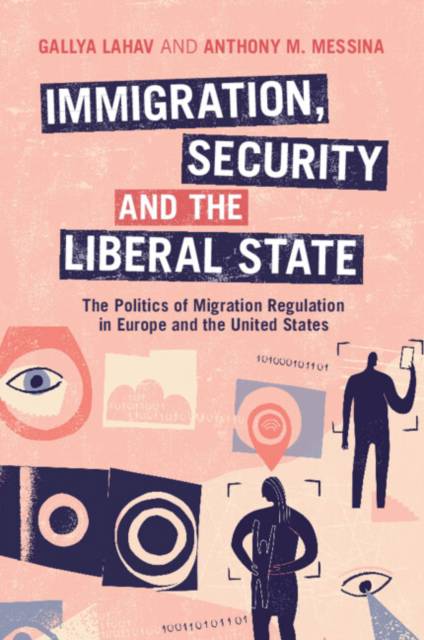
- Afhalen na 1 uur in een winkel met voorraad
- Gratis thuislevering in België vanaf € 30
- Ruim aanbod met 7 miljoen producten
- Afhalen na 1 uur in een winkel met voorraad
- Gratis thuislevering in België vanaf € 30
- Ruim aanbod met 7 miljoen producten
Zoeken
Immigration, Security, and the Liberal State
The Politics of Migration Regulation in Europe and the United States
Gallya Lahav, Anthony M Messina
Paperback | Engels
€ 64,95
+ 129 punten
Uitvoering
Omschrijving
Contextualizing the regulation of human mobility in a new security framework, this book offers an original perspective on the dominant mode of politics and evolving norms shaping the immigration policies of contemporary liberal states. In doing so, the authors challenge existing paradigms that privilege economic and cultural factors over new security ones in explaining the critical institutional and normative changes in migration management, from the early post-WWII through the post-Cold War era. Drawing on evidence from multiple sources, including media and elite discourse, policy tracking, party manifesto data and public opinion across Europe and the US, the book exposes the restrictive nature of immigration politics and policies when immigration is framed as a security threat, and considers its implications for civil liberties. Informed by a rich breadth of scholarly sub-disciplines, the findings contribute both empirically and theoretically to the literatures on international migration, security and public opinion.
Specificaties
Betrokkenen
- Auteur(s):
- Uitgeverij:
Inhoud
- Aantal bladzijden:
- 514
- Taal:
- Engels
Eigenschappen
- Productcode (EAN):
- 9781009297998
- Verschijningsdatum:
- 18/01/2024
- Uitvoering:
- Paperback
- Formaat:
- Trade paperback (VS)
- Afmetingen:
- 152 mm x 229 mm
- Gewicht:
- 680 g

Alleen bij Standaard Boekhandel
+ 129 punten op je klantenkaart van Standaard Boekhandel
Beoordelingen
We publiceren alleen reviews die voldoen aan de voorwaarden voor reviews. Bekijk onze voorwaarden voor reviews.







